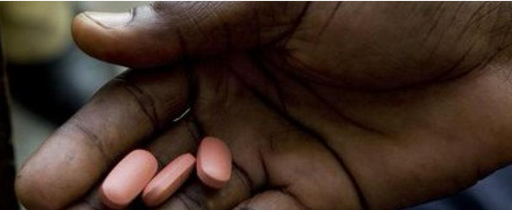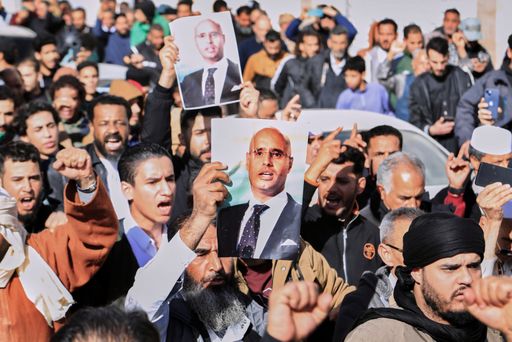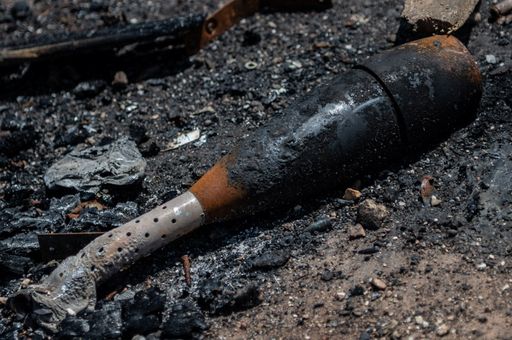Sport
Antibiotic resistance is accelerating across Africa, turning routine infections into deadly threats as overstretched health systems and patients struggle with limited diagnostics, expensive last-line treatments, and drug-resistant bacteria.

Adebayo, a 32-year-old teacher in Lagos, thought he had caught another common seasonal bug when the fever and cough started.
Common antibiotics should have cleared it up. They didn't. Within days, his condition worsened. Tests revealed he had a severe infection caused by the Klebsiella pneumoniae bacteria.
The scary part was that almost nothing in the hospital's pharmacy was able to control the infection.
"I felt a deep fear, not just from the sickness, but also from the helplessness of those treating me," Adebayo tells TRT Afrika. "The available medicines seemed to be of no use in my case. The doctors were scrambling, and I was trapped in a battle I didn't understand."
His life was ultimately saved by an expensive, last-resort antibiotic. It's a treatment option that remains out of reach for many across the continent.
Growing resistance
Adebayo's experience reflects a crisis unfolding across Africa and elsewhere. A new World Health Organisation (WHO) report reveals that one in six bacterial infections worldwide are now resistant to antibiotics, with the scale of the threat growing at 5-15% annually.
In WHO's African Region, the figure is starker still. One in every five laboratory-confirmed infections shows antibiotic resistance.
Healthcare workers across countries handle the consequences of indiscriminate antibiotic use leading to resistance every day. In Cape Town, South Africa, nurse Anathi Bhengu has seen the crisis intensify over the years.

"We face this predicament daily. Infections that should have been straightforward to control with medication turn life-threatening," Bhengu tells TRT Afrika. "Thereafter, it's a race against time to find a drug that works."
Bhengu's hospital has implemented strict antibiotic stewardship programmes to prevent indiscriminate use of medication.
"We now test faster, target treatment more precisely, and educate every patient that antibiotics are not for a common cold or the flu. The key to overcoming this challenge is vigilance and changing how we use lifesaving drugs."
WHO estimates that antibiotic resistance is highest in Southeast Asia and the Eastern Mediterranean region, although Africa too faces the problem.
Countries with stretched healthcare systems like Nigeria, the Democratic Republic of Congo and Kenya are particularly vulnerable. This is because many clinics and hospitals lack the diagnostic capacity to quickly identify resistant pathogens and the resources to stock costly last-line treatments.
Infection cocktail
Antibiotic resistance assumes dangerous proportions when patients don't respond to first-choice treatments for gram-negative bacteria like E. coli and Klebsiella pneumoniae, both of which cause potentially fatal bloodstream infections and sepsis. In Africa, resistance to first-choice treatments for these bacteria exceeds 70%.
So, how are African nations ramping up their response to these threats?
The UN General Assembly's 2024 declaration on antimicrobial resistance entails adopting a "One Health" approach. This means coordinated action across human health, animal health, and environmental protection.
Member countries are already strengthening their laboratory systems and improving surveillance through WHO's Global Antimicrobial Resistance and Use Surveillance System (GLASS).
Participation has quadrupled since 2016. The goal is for all countries to report high-quality data by 2030, which will ensure treatment guidelines are based on local resistance patterns.
"Antimicrobial resistance is outpacing advances in modern medicine, threatening the health of families worldwide," says WHO's director-general, Dr Tedros Adhanom Ghebreyesus, while emphasising the need for responsible antibiotic use, equitable access to medicines and diagnostics, and innovation for new treatments.
For survivors like Adebayo, fear of what might happen the next time an infection strikes never seems to go away.
"I am one of the lucky ones, but I also think of those who are not," he tells TRT Afrika. "We must ensure antibiotic resistance doesn't become a scourge for the next generation. A simple injury or a common illness can become a death sentence."
Comments
No comments Yet




















Comment